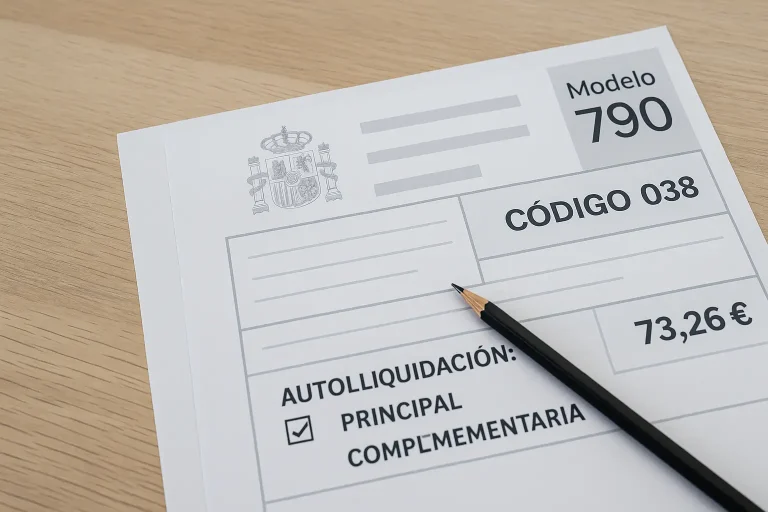
Spanish Digital Nomad Visa Guide
The term “Digital Nomad Visa” can be a bit misleading. Despite its name, the Spanish Digital Nomad Visa is not a traditional visa. Instead, it’s a residency program designed specifically for remote workers.
The program is an initiative by the Spanish government to attract international talent and foster digital entrepreneurship within its borders. It facilitates the relocation of non-European Economic Area (EEA) nationals to Spain, enabling them to work remotely for companies based outside the country.
Unlike traditional work visas, which often require sponsorship from a local employer, the Spain Digital Nomad Visa empowers individuals to maintain their autonomy and flexibility.
This means that you can legally live in Spain for the duration of your visa (residency permit) without worrying about overstaying tourist visas or working illegally. This legal status also allows you to open a bank account, sign a lease, and access local services.
This guide is your navigator through all the requirements of this new residency type, its financial advantages (including opportunities for savings), and contains a multitude of legal advice that is critically important for your application process.
So, if you dream of working from a country that promises optimal living conditions without the restrictions of a tourist visa, this is your chance to learn more!
Understanding Spain’s Visa for Remote Workers and Digital Nomads
Spain’s digital nomad visa serves as a residency authorization that can be renewed for up to five years, granting non-European Union citizens the right to live and work remotely within Spanish borders—a legal pathway for digital nomads. Indeed, for remote work! At last, individuals aiming to relocate to Spain while continuing to work for overseas companies or with a global client base will discover a residency permit that aligns with their lifestyle—unlike the non-profitable visa, which does not permit employment. A notable feature of this residency is its flexible application process:
- You have the option to apply from within Spain on a tourist visa, directly obtaining a three-year residency card,
- Alternatively, secure a one-year visa through the Spanish consulate in your home country, which can later be converted to the three-year card.
Do these years contribute towards citizenship? Affirmatively, time spent under this three-year card (including renewals) is counted towards both Spanish citizenship and permanent residency eligibility—achievable after five years as a remote worker or digital nomad in Spain. Beyond the fiscal benefits to be discussed later, this permit also enables you to include your partner and offspring in the same application, facilitating family relocation to Spain. Moreover, as part of the Entrepreneurs Law, applicants enjoy expedited processing within 20 days, and a positive default outcome if no response is received within this timeframe, implying automatic approval. Additionally, this residence card permits unrestricted movement throughout the European Union. As noted, the visa caters specifically to non-EU nationals, whereas Europeans can engage in remote work for half a year in Spain (extending their stay simply requires acquiring a resident NIE). Now, let’s delve into its prerequisites to ascertain whether this visa suits your needs.
Eligibility Criteria for Spain’s Remote Worker Visa
The digital nomad visa in Spain is a residence permit that can be extended up to 5 years and will allow non-EU citizens to live and work remotely from Spain. Here’s a detailed look at the requirements with HTML markup:
• There are two profiles of applicants: those employed by companies allowing remote work and self-employed individuals with clients or online income from outside Spain. • Your work must be for a company or clients located outside of Spain. • Incomes from Spanish sources should not exceed 20% of your total income.
• A minimum of 3 months’ work history with your current employer or clients is required before applying. • You should have a contract for at least 1 year. • An annual salary of €31,752, which is €2,646 per month, is necessary.
• Prove experience or education: either 3 years of work experience or a degree from a recognized university or vocational training institution.
• No criminal records and no entry bans to Spain; provide a criminal records certificate that’s been legalized and apostilled. • Complete and submit the application form along with the administrative fee 790 038.
• Private health insurance with full coverage in Spain is required. For employees, the foreign company must have been operational for at least 1 year, and the role must permit remote work. Freelancers must work for at least one company outside Spain, with remote work terms specified in the contract. These conditions contribute to eligibility for the digital nomad visa, facilitating a legal pathway for remote work in Spain.
Fiscal Advantages of Acquiring Spain’s Remote Work Visa
The allure of Spain’s digital nomad visa extends beyond residency perks to include significant tax incentives. A special tax regime is in place to help visa holders reduce their tax burden. As an employee working remotely for a foreign company, you’ll be subject to an enhanced Non-Resident Income Tax Regime. Understanding the tax system for foreigners in Spain reveals that paying non-resident income tax, as opposed to the standard resident tax, results in substantial savings on your generated income. If you haven’t resided in Spain in the last 5 years, you’re eligible to pay a flat tax rate of 24% on earnings up to €600,000, a significant reduction from the progressive rate that can soar up to 48%. To qualify as a non-resident for tax purposes, initiate a distinct application process with the Spanish Tax Agency within 6 months of receiving your residency authorization, akin to the Beckham Law procedure. This regime not only caps your work-related income tax at 24% but also exempts you from wealth tax and the Model 720 declaration. Digital nomad visa holders can also defer IRNR payments for the first two years if they have a positive taxable income, interest-free. This favorable tax treatment lasts for 5 years, provided you maintain your digital nomad residency status, after which you transition to the general tax system. Keep these tax benefits in mind as they enhance the appeal of the digital nomad visa in Spain.
Is Employment Within Spain Permitted on a Digital Nomad Visa?
Indeed, the digital nomad visa does permit non-EU citizens to work remotely from Spain for a foreign company. But when it comes to working within Spain for a Spanish company or client, there is a notable restriction.
You may work for a Spanish entity provided that: a) You continue the relationship with the foreign company that enabled you to acquire the visa, and b) The revenue from the Spanish company constitutes no more than 20% of your total income.
This limitation ensures that the primary source of income remains international, aligning with the visa’s intent to support remote work from Spain, rather than domestic employment. Maintaining this balance is crucial for compliance with the visa’s conditions.

Schedule a free consultation
If you’re ready to star the process of moving to Spain, then schedule a free consultation, send us an email or reach out via chat or WhatsApp
Steps to Secure Your Remote Worker Visa
You have two pathways to approach the UGE for your visa:
• Option 1: Apply from your home country for the digital nomad visa. This grants you a one-year visa, which later can be transitioned into residency.
• Option 2: Apply from within Spain as a tourist to receive a three-year permit, extendable for an additional two years.
Both options offer a fast-track application process, ensuring a response within 20 days.
The final step involves a visit to the local police station to register your fingerprints and collect your residency card.


